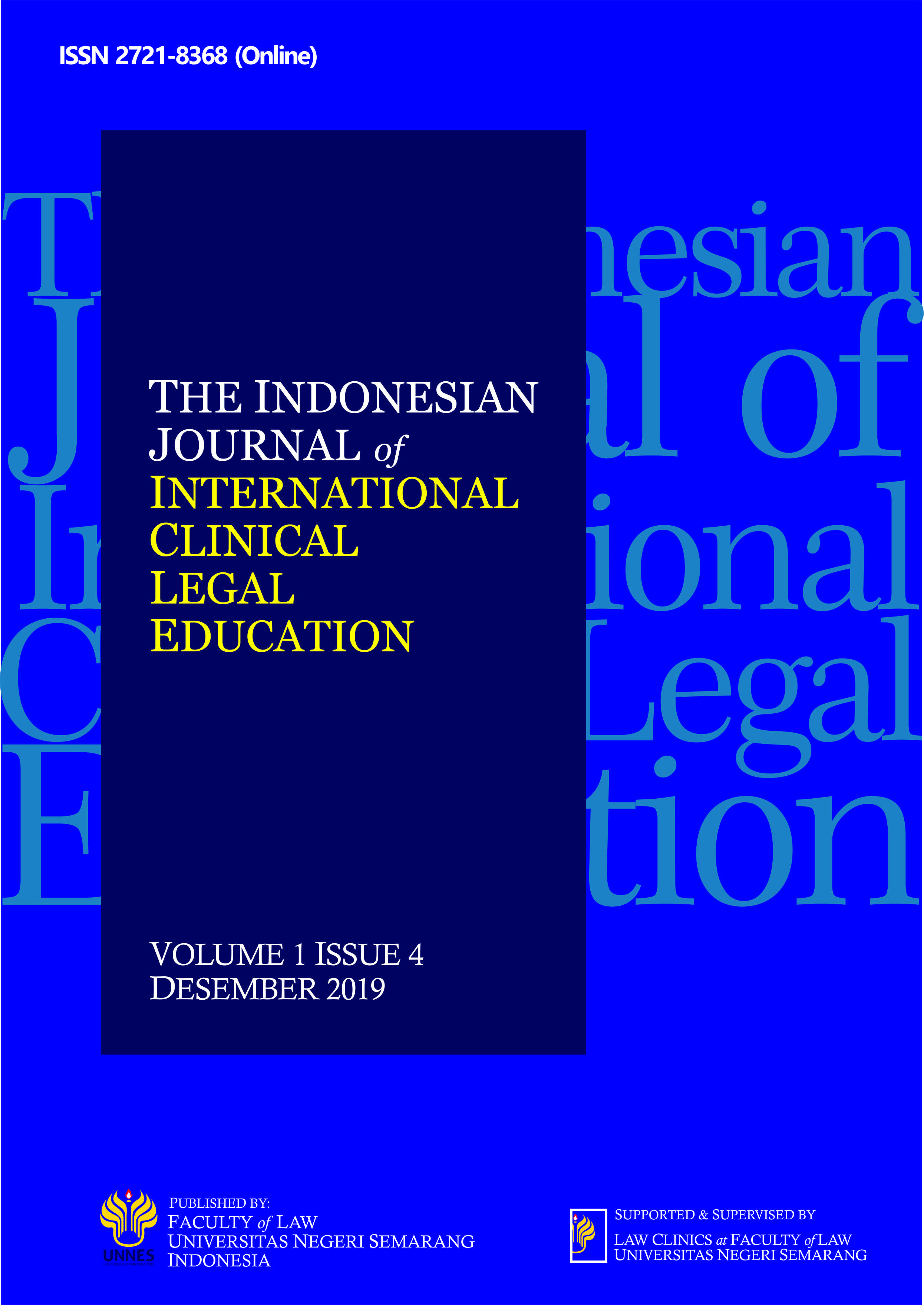Effect of Positivism in Clinical Legal Education
Main Article Content
Abstract
Clinical Legal Education (CLE) is an education in legal study that aims to
provide knowledge on practical expertise that aims to make law
graduates capable of providing legal services (legal advocacy).CLE
become important in recent days because of the tendency to resolve
the matter through legal channels is increasing. But in fact, it shows
that law enforcement is almost interpreted only as rule enforcement.
The trend that happens, aspects of compliance procedures take
precedence over justice. The modern law scientification is strongly
influenced by the emergence of positivism paradigm in modern
science. At present, along with the complexity of the problems of
people and society, the main character of modern law is a rational
nature. Rationality is characterized by the nature of a procedural rule of
law. Procedure, thereby becoming an important legal basis to establish
what is called justice, even the procedure becomes more important
than talking about justice itself. Legal education, thus more likely to
produce professional practitioners. The resulting legal practitioners are
legal actors who are expected to make a decision which side is wrong
and what is right under the provisions of the law. Through this paper is
expected to obtain the understanding that CLE should not result the
Law degree who only give priority to the compliance procedure as
positive law, but also still guided ethics and efforts to achieve justice.
The method used for writing this paper is the socio legal research with
inductive analysis. Thus, the fact that occurred in the law enforcement
practices will be a major premise and provide input and analysis in this
paper.
Article Details
The copyrights of the article in Indonesian J. Int'l Clinical Leg. Educ. is on the Author(s), however, before publishing, it is required to obtain written confirmation from Author(s) in order to ensure the originality (Author Statement of Originality). The statement is to be signed by at least one of the authors who have obtained the assent of the co-author(s) where applicable. This work licensed under a Creative Commons Attribution-ShareAlike 4.0 International (CC BY-SA 4.0). All writings published in this journal are personal views of the authors and do not represent the views of this journal and the author's affiliated institutions.
